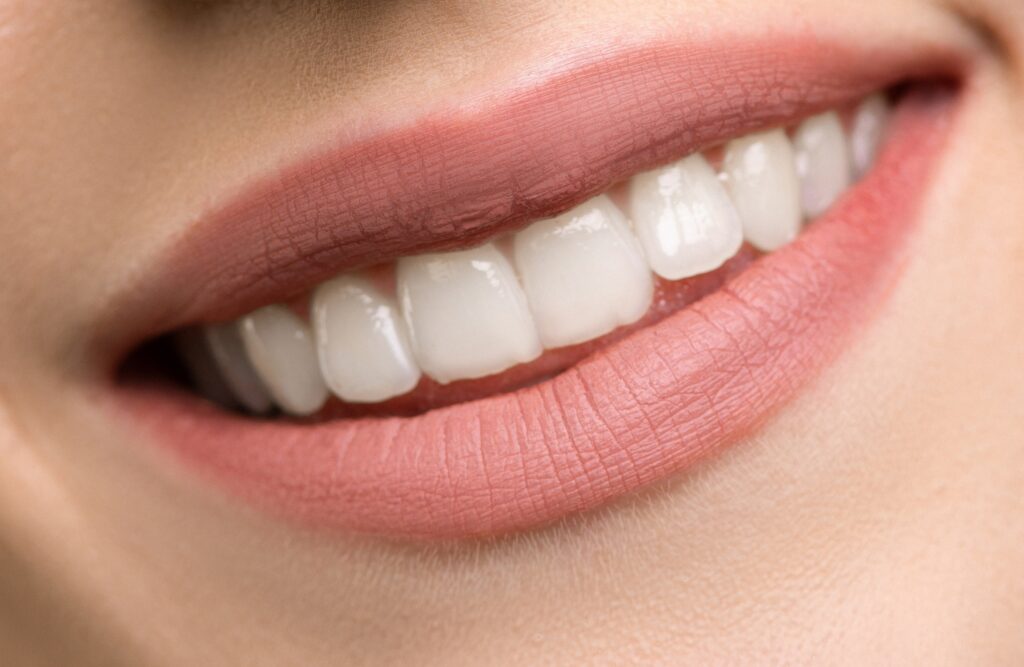Oil pulling is an Indian traditional remedy that involves the swirling of oil around the mouth, and you should know its importance. Several type of oil have been used for oil pulling, especially coconut oil has been gaining popularity in recent years due to its purported health advantages. This article provides an overview of oil pulling, including what it is, the steps involved, and the potential benefits of the practice. Additionally, it explains how to do oil pulling to maximize its benefits.
Introduction:
Ayurveda suggests oil pulling as a morning ritual to reduce the presence of bacteria in the mouth and promote oral health. However, if you are unsure of how to properly oil pull, or you have stumbled upon this blog post, you are ready to learn. Oil pulling involves the swishing of oil around the mouth, teeth, tongue, and gums. However, which oil to use will be discussed later in this blog.

What is oil pulling?
Oil pulling is performed by swishing the oil around the mouth. It works similarly to mouthwash but takes longer to work. Oil absorbs easily and is known to have anti-inflammatory and anti-bacterial properties. It is also edible so there are few risks associated with its oral use. Many advocates of oil pulling recommend swishing 1 spoon of oil around the mouth for 15-20 minutes and then spitting it out. Always do oil pulling on empty stomach if you plan to perform oil pulling at night instead of in the morning.
What happens during oil pulling therapy?
The mouth is full of over 600 different bacteria, some of which are good for your mouth and help create a healthy microbiome. But the rest of the bacteria can wreak havoc on your oral health, causing things like tooth decay, gums that bleed, and more. Oil pulling can help get rid of these bacteria by using a lipid membrane that sticks to the oil. When you swish the oil around your mouth, the bacteria break away from the tissues, attach to the oil, and get flushed out when you spit it out. It’s like how detergent gets rid of dirt molecules from your clothes.
What are benefits of oil pulling?
Oil pulling is a centuries-old technique that helps reduce bacteria in the mouth, keeps your gums hydrated, and helps keep cavities away. It’s simple to use and has been connected to Ayurvedic medicine in India. Some people say that oil pulling can help treat a variety of illnesses. It’s believed to “pull” germs out of the mouth, moisturize gums, and boost saliva production. It’s also thought to be anti-inflammatory, which can help keep your gums healthy. Unfortunately, there’s not a lot of research on oil pulling, so we don’t know exactly how effective it is.
1. May help prevent cavities-
Tooth decay is a widespread issue that can be caused by a variety of factors, such as poor oral hygiene, excessive sugar consumption, and a build-up of bacteria. This can lead to the formation of cavities, which are holes in the teeth. Additionally, plaque can also be a contributing factor to tooth decay. Plaque is a coating that forms on teeth, composed of bacteria, saliva and food particles. When bacteria break down these food particles, they form an acid that damages tooth enamel, resulting in tooth decay.
Oil pulling has been found to be effective in reducing the number of bacteria present in the mouth, thus preventing tooth decay. Furthermore, some research has suggested that oil pulling may be as effective as mouthwash in reducing harmful bacteria.

2. Can reduce detrimental bacteria in your mouth-
The mouth is full of all kinds of bacteria, some of which can cause tooth decay and other health issues like bad breath and gum disease. According to a 2016 study, oil pulling can help reduce the amount of bacteria in your saliva and help keep your mouth clean. People who use oil pulling say it helps get rid of bad bacteria from your mouth and teeth. Some dentists say it can help get rid of bacteria, but that doesn’t mean it can kill them.
3. May help reduce inflammation and improve gum health-
Oil pulling has been found to be an effective alternative treatment for gum disease, particularly Gingivitis, a condition characterized by red, swelling gums that are prone to bleeding. This is largely due to the presence of bacteria in the plaque, which can lead to bleeding and inflammation. Oil pulling is believed to reduce the presence of these harmful bacteria, as well as the amount of plaque, in the mouth, thereby improving gum health and reducing inflammation.
4. Could help reduce bad breath-
Bad breath isn’t just a source of embarrassment, it can also have a negative impact on your relationships. It’s usually caused by bacteria that build up in your mouth, like bacteria that produce sulfur. To get rid of these bacteria, you can try oil pulling or gargling, which can help flush them out of your mouth and leave you with fresher, odourless breath. A study from 2011 suggested that oil pulling could be a natural way to fight bad breath, but more research is needed because most studies have been small.
5. Whitening the teeth-
While there is no scientific proof that oil pulling will whiten your teeth, there is some anecdotal evidence that it may remove stains from your teeth’ surfaces. There’s no harm in using oil pulling to whiten your teeth.
6. Promotes healthy teeth-
It’s really important to keep your oral microbiome healthy if you want to keep your teeth and gums healthy. Streptococcus mutans are one of the biggest causes of tooth decay, and oil pulling for a few minutes a day can help reduce the number of them in your mouth, so you don’t have to worry about tooth decay.
7. Supports detoxification-
Studies have shown that good oral hygiene is linked to better health. Bacteria that live in your mouth can get into your food, which can lead to health issues like heart disease and inflammation in your heart. Oil pulling helps get rid of bacteria in your mouth, which helps your body detoxify.
8. Cheap and easy to add to your routine-
Oil pulling is super easy to do and you can easily incorporate it into your daily routine. Plus, you only need one ingredient, so you don’t have to buy anything. Sesame oil is the go-to, but you can also use other types of oil. Coconut oil is great for oil pulling because it has strong anti-inflammation and antibacterial properties. Olive oil is also a great option because it helps reduce inflammation.
9. Promotes healthy sinus-
Although there aren’t a lot of studies out there, what we do know is that oil pulling can help keep your sinuses healthy. Because your sinuses are so close to your mouth, keeping your oral microbiome healthy can help stop bacteria from causing sinus infections.

How to do oil pulling?
Oil pulling is super easy and only takes a few steps. It’s pretty straightforward – just pick a good quality edible oil like sunflower, coconut, or sesame.
Here is how you can try oil pulling:
- Dip one teaspoon of oil into your mouth and swirl it around for 15 minutes (start with 5 minutes for beginners).
- Spit out the oil; don’t swallow.
- Allow some time to balance your oral microbiome.
- Rinse your mouth with lukewarm warm water.
- Don’t eat anything right away after oil pulling.
Do this a few times a week or even three times a day. You can also start gradually, swishing for 5 minutes and then increasing it until you can do it for 15-20 minutes. Most people suggest doing it right away in the morning, but you can change it up if you want.
Things to consider before oil pulling:
If you’re allergic to any oil, it’s important to get a patch test to make sure you don’t have an intolerance. Oil-pulling doesn’t have any known risks. It’s not a replacement for brushing your teeth or flossing – it’s just a way to promote good oral hygiene. Experts suggest adding oil-pulling to your routine in the morning and sticking with it for four to six weeks to start seeing results.
Oil-drawing can be uncomfortable if it’s in your mouth for too long, but sticking with it regularly will make it easier. When choosing an oil for oil-pulling, think about its natural properties – for example, sesame oil can help control bad breath, but coconut oil is a great way to keep your mouth healthy.
What are possible side effects of oil pulling?
It’s okay to have the oils you use for oil pulling in your mouth, but don’t swallow them – they can cause digestive issues and diarrhea. Traditional Ayurveda medicine also says don’t swallow the oil – it’s full of toxins and bacteria, so spit it out and clean your teeth after you’re done. If you’re allergic to coconut or coconuts, it’s not a good idea to try oil pulling with coconut oil – but otherwise, there’s no risk.
Conclusion:
According to some studies, oil pulling reduces harmful bacteria in the mouth, prevents plaque formation, and improves both gum health and overall oral hygiene. However, there is limited research to support these claims, but you should know its importance. It is important to note that oil pulling should not be used as a substitute for traditional oral hygiene practices such as brushing teeth regularly, flossing regularly, getting regular cleanings, and going to the dentist if you have any oral hygiene issues.
When used as an add-on treatment, however, oil pulling can be a safe, effective natural remedy to enhance your oral health. Unfortunately, there’s not a lot of scientific evidence to back this up, but oil pulling is a simple, often inexpensive, and generally safe method to add to your oral health routine.
FAQ
Does oil pulling really work?
It’s still debated how effective oil pulling is. Some people say it can help with oral health and other health issues, but there’s not much scientific evidence to back this up. It’s best to talk to a dentist or other healthcare professional before using oil pulling as your only dental care option.
Which oil is best for oil pulling?
Coconut oil is often recommended for oil pulling because it has a mild taste and may have anti-microbial properties. Coconut oil contains lauric acid, which is thought to improve oral health. However, individual tastes and sensitivities may affect the selection of coconut oil.
Does oil pulling have any proven health benefits?
While some advocates claim that oil pulling can help improve oral health and detoxify the body, there is little to no scientific evidence to back up these claims. More research is needed to determine the effectiveness of oil pulling for these alleged benefits.
Can oil pulling improve oral health and whiten teeth?
While there are some anecdotal reports that oil pulling can improve oral health or teeth whitening, there isn’t a lot of scientific evidence to back this up. Regular dental hygiene, such as brushing and flossing, as well as professional cleanings, are the best ways to keep your teeth healthy and whiten your teeth.
What are the different types of oils used for oil pulling?
Oil pulling can be performed with a wide range of oils, with coconut, sesame and sunflower being the most popular choices. These are chosen for their mild flavor and potential anti-microbial properties, however, individual preferences and allergies should be considered when selecting an oil for the purpose.
Is oil pulling effective for treating bad breath?
Unfortunately, there isn’t a lot of research to back up oil pulling as a stand-alone treatment for halitosis (bad breath). While some people say that oil pulling improves their oral odor, regular oral hygiene (brushing, flossing and tongue cleaning) is usually more effective at controlling bad breath.
Are there any potential side effects or risks of oil pulling?
It is generally accepted that oil pulling is safe for the majority of individuals. However, some individuals may experience mild adverse reactions, such as nausea and gastric distress, particularly if they inadvertently ingest the oil. Additionally, there is a potential risk of lipopneumonia from inhaling the oil into the lungs while swishing, although this risk is relatively low.
How often should I do oil pulling for best results?
For those who want to try oil pulling, the recommended duration is 5 to 20 minutes a day, ideally in the morning, before eating or drinking. However, everyone’s preferences and tolerances are different, so it’s best to start with a short duration and gradually increase it if you feel comfortable, while keeping an eye out for any side effects.
Reference Used:
https://www.healthline.com/nutrition/6-benefits-of-oil-pulling#improves-gum-health
https://www.medicalnewstoday.com/articles/323757
https://www.keralaayurveda.biz/blog/oil-pulling-comprehensive-guide-for-natural-wellness





